Brendan Carroll is the CEO and founder of Skycision, a company founded in 2015 that’s bringing analytics to farmers in the form of SaaS — and it’s already beginning to disrupt the massive market of crops management. They just closed a round of $1.1 million in funding — and Carroll took a moment to talk entrepreneurship and update the Nasdaq Entrepreneurial Center on his journey as a founder so far.
Tell us — what does “entrepreneurship” mean to you?
BC: For me, entrepreneurship means doing everything we can do today, to build a better tomorrow. It’s amazing because everyone has a different version of what a better tomorrow can look like, and everyone who pursues this path has experienced different trials and tribulations that have led them to that singular moment of creation. In its purest form, entrepreneurship is a combination of so many things including the inspiration that drives a person to create something new, the relentless persistence it takes for the entrepreneur to endure the adversity to come, and ultimately, the unique ability to unite and enable a group of people around a greater vision of what tomorrow could be.
Describe the moment you realized Skycision needed to happen?
BC: The last semester of my Masters of Information Systems program at Carnegie Mellon University, I was exploring ideas around drone delivery of pharmaceuticals or blood transfusions to people who did not have access in rural areas. When I spoke to a lot of people in rural towns, many of which turned out to be farmers. It didn’t take long for me to realize that farmers had a lot of problems they had to deal with from losing their crops to pests and disease, to the storage, sales and marketing of their product, all amidst the vast number of physical labor hours required on a daily basis.
None of the problems they faced had to do with the use case I was exploring, but it didn’t take long before I transitioned to a bigger idea that would evolve to become Skycision today. Agriculture is a massive industry that is labor intensive and reactive, so what if we could help them by using tools like off the shelf drones to collect imagery that would enable them to save time, and enhance the productivity and profitability of their operation. Shortly thereafter, I turned down a full-time offer with an investment bank in New York and went to pursue Skycision full-time.
What’s the biggest experience or lesson gained on your journey so far?
BC: I’d have to say the biggest lesson I’ve taken away from my journey is that focus wins. We have a company whose product could pursue a number of other industries or use cases, but we’ve chosen to stay focused specifically on Agriculture and have tailored our solution to maximize the value realized from that clientele base. The fruits of that choice are evident in all the client interactions that we have to this date. Focusing on a client’s value realization of a solution is the single most important thing an entrepreneur can do.
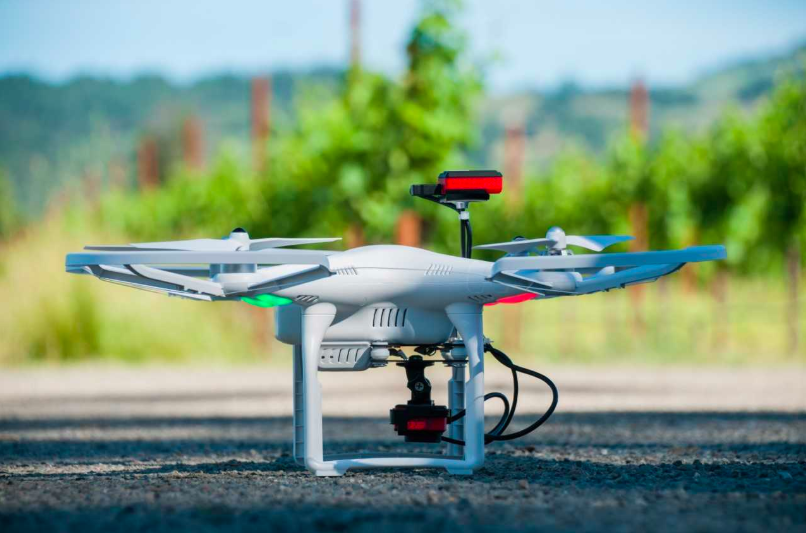
How is your company changing the landscape?
BC: Agriculture is a labor-driven and reactive industry that is constantly battling threats from pest, disease, and climate change. Skycision empowers our growers with a real-time view of what’s happening on every acre of their fields — alerting them to issues or problems that may need their attention. By combining aerial imagery with real-time data inputs from sensors in their fields, our growers can take swift, prescriptive actions in the areas of their fields that need their attention the most.
What do you wish you knew when you started? Is there anything you would do differently?
BC: One thing is how to be less busy. Every founder has an infinite to-do list that never gets completed. Prioritization is a skill that we must master early and utilize on a daily basis. Making time for exercise and things like meditation are important to a founders longevity, those that allow themselves to become ‘too busy’ will, more times than not, quickly feel burn-out.
What advice/credo do you live by as you grow the business / what is your professional and personal mission statement?
BC: Satisfaction is the death of desire. Personally and professionally, I set goals that are meant to be attained, and that are meant to be stepping stones for greater ambitions. When we allow ourselves to be too satisfied with a particular accomplishment, we run the risk of losing that fire that originally drove us to fulfill that goal. This mentality can apply to shipping a new feature of a product, bettering one’s health, or even being a better partner in a relationship or marriage. The desire to improve each and every day drives just about everything I do on a personal and professional level.
What’s it like to work alone or with your partners? What advice do you have for fellow entrepreneurs about building and leading teams?
BC: I’d advise other entrepreneurs to first and foremost take care of themselves. Entrepreneurship is tough and it can be incredibly isolating and lonely at times. Founders need to make sure that their mental health is a top priority. We get so busy, and sometimes so stressed, it’s easy to forget to take care of ourselves first. Ensuring a workout routine, at least six hours of sleep and eating reasonably healthy are cornerstones to good and enduring health.
When thinking of working with others or building teams, the most important trait a leader can have is empathy. At the end of the day, decisions are the entrepreneurs to make, but understanding the perspective of team members inputs and acknowledging their position will enable the most effective teaming. Being empathetic and having strong communication are the building blocks for any highly productive team.
Where do you find inspiration when faced with challenges?
BC: I usually face challenges with a problem-solving mentality. I never feel there is a challenge that can’t be overcome, it’s always a question of how to overcome. In such instances, I usually try to find some peace and solitude to think things through with a clear head. I’ll leave my cell phone in a room, and go for a jog with no music or a long walk. If I’ve hit a bit of a wall and feel like I’m stuck, I call on some fantastic mentors I’ve been fortunate enough to surround myself with. After synthesizing their feedback and giving myself time to process without distraction or interruption, I usually am able to come up with a solution to whatever the challenge is.
What does “success” look like for you? What do you think will help you achieve it?
BC: Everyone defines success differently, and to me, it’s not a singular destination. For me, being successful is not quantified by net worth or company valuation, it’s defined by the number of lives I can touch. Those lives can be those of our clients, investors, or even other entrepreneurs. I think one day I’ll look back and be able to say I’ve been ‘successful’, and hopefully that I’ve made an impact on the world and the people I’ve had the fortune of coming into contact with along the journey.
What is your proudest and darkest moment so far?
BC: I’d say the lowest low had to be when we were working to raise capital and Skycision was out of money, and for two months my personal account and lifetime savings combined to a negative dollar amount. We missed a couple payrolls, I was borrowing money to eat, and my apartment was a miserable 225 square feet, but we persisted and eventually got through it.
Not long after that point of despair, we went on to raise funding, and days after securing the lead investor for our round, we won Pittsburgh’s Tech Council Startup of the Year Award. The whole team was called on stage in front of an audience of about 1,000 in the local tech community. To go from such a hard low to receiving that kind of recognition and finally securing some financial stability was just a tremendous feeling of relief, security, and reassurance. It breathed new life into our team and we haven’t slowed down since.
What lesson did 2017 have for you? What do you look forward to in 2018?
BC: 2017 did an amazing job at teaching my team and I what it means to keep your head down and focus entirely on execution. It was a year where we saw just about every aspect of our business transcend and substantially improve. After making so much progress in just one year’s time, I’m excited to see how that progress continues to accelerate as our team gets larger and our product starts to experience substantial growth in the market.
Many entrepreneurs continue to perfect their daily routines to support their work and greater vision; would you mind sharing your morning routine or a regular ritual that grounds your work each day?
BC: Depending on things like travel and what time zone I’m in that week, I typically like waking up between 4am and 6am. I’ve found that my absolute best work is completed when there are no distractions and everyone else is sleeping. Those 4-6 hours of time to myself in the morning are spent completing whatever high priority work I need to get done for the day with all devices and email in do not disturb mode, either doing a 1-2 mile run followed by meditation or a high intensity 45 minute workout at the gym, and finally will typically take a 40 minute power nap between 11am and 1pm when everyone is at lunch to ensure I remain sharp throughout the remainder of the day.
By taking care of my ultra-high priority work and taking care of my body first thing each morning, I set both myself and my team up for success for the remainder of the day.
What kind of a founder do you want to be remembered as?
BC: To relate back to my earlier stated definition of success, I’d like my legacy to be about having made a substantial global impact for social good. Today, we’re working to help farmers feed a planet that needs to increase food production by 70% in 30 years to feed its growing population in order to ensure global food security. Poverty in developing countries are most extreme in rural areas, and in so many cases farmers can barely make ends meet.
I’d love nothing more than for my legacy to be making a difference in these people’s lives that have so much less, who work so hard to provide for others, and to have made an even larger impact in playing a role in securing the future of food production for a rapidly growing global population.
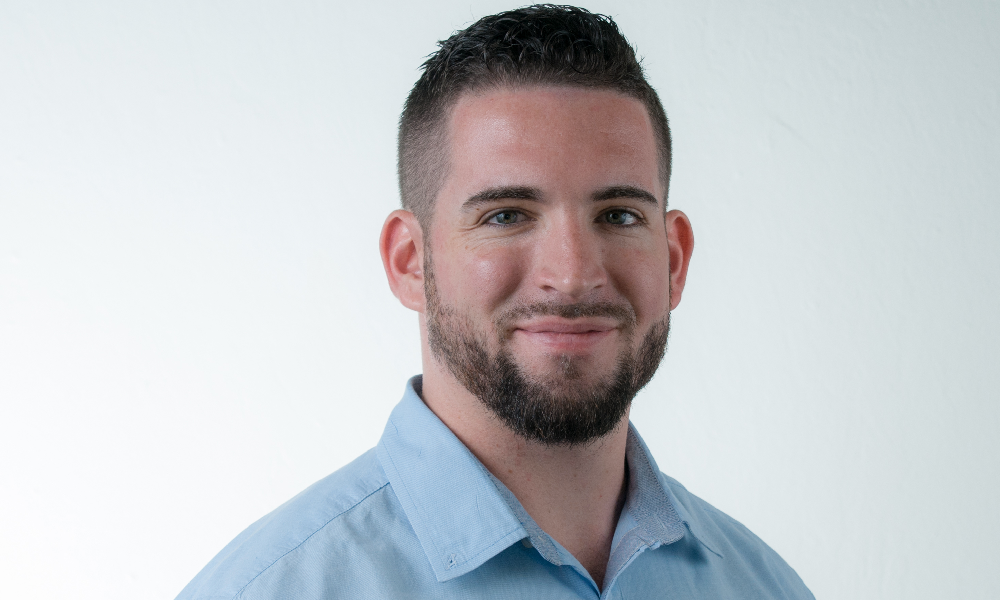
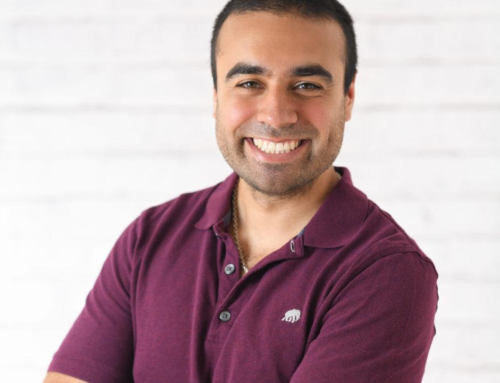
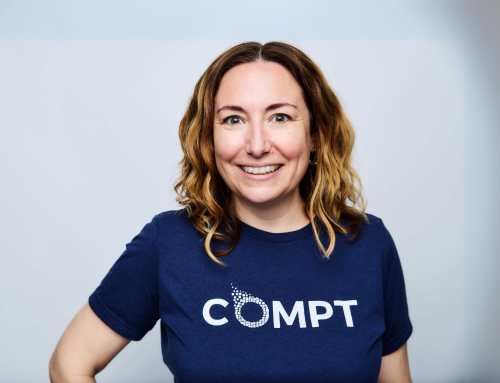
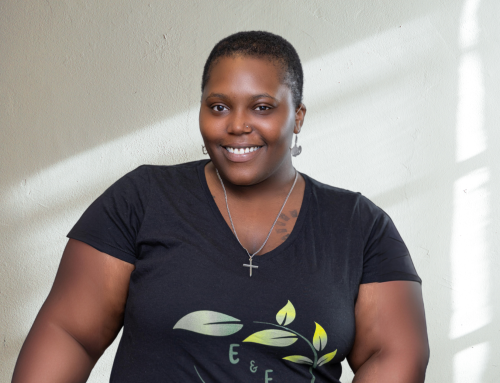
Invite a Friend
Close